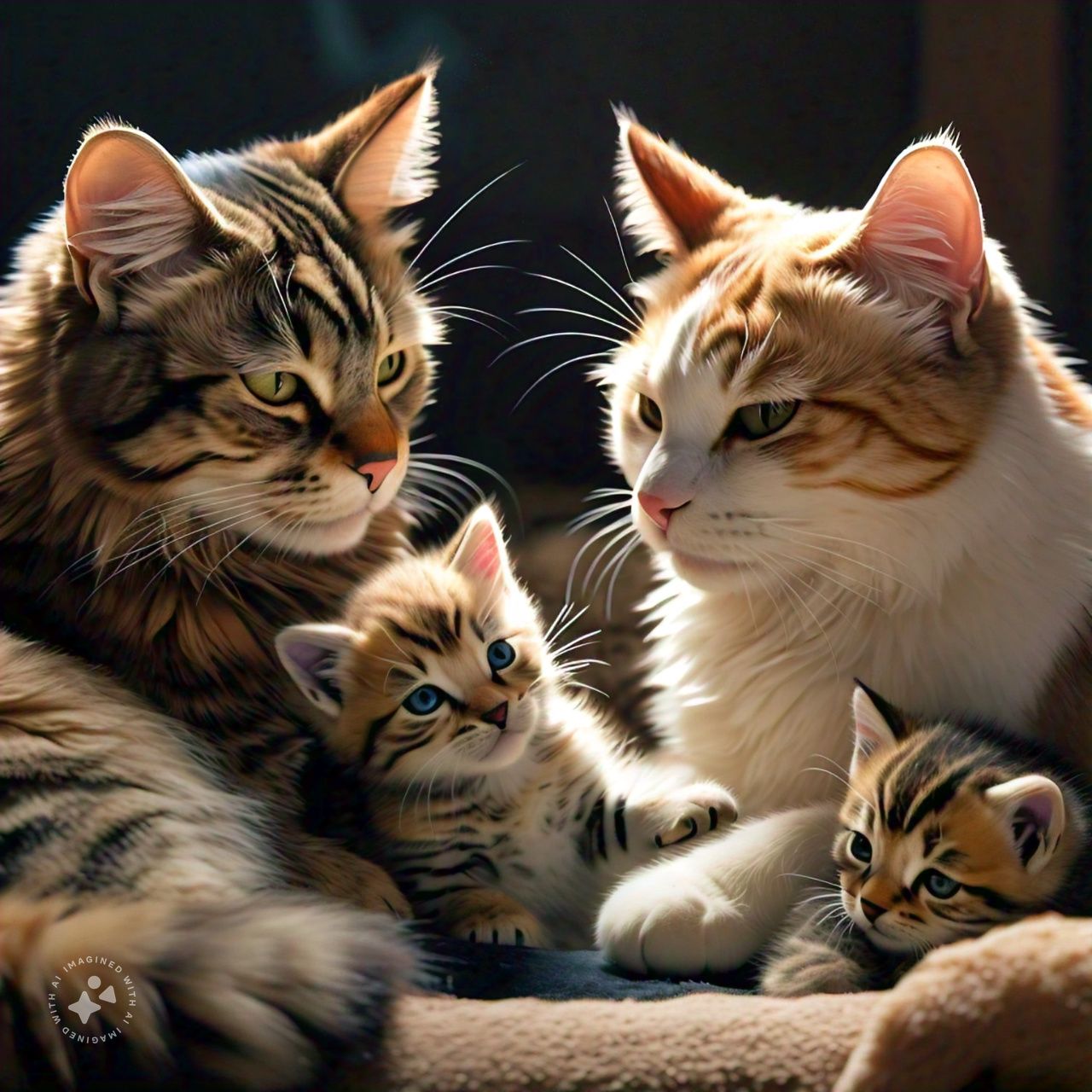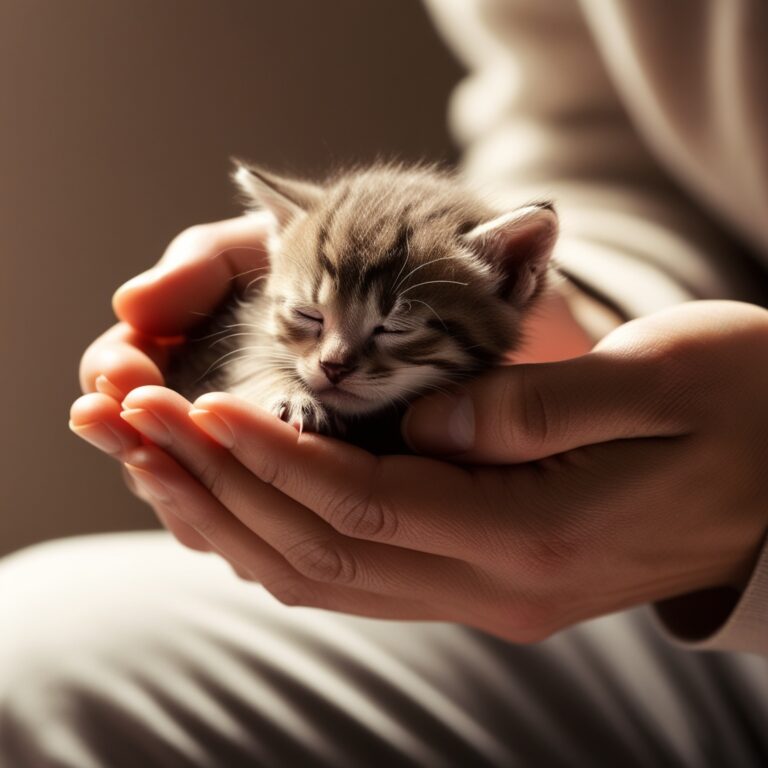Is It True That Male Cats Kill Kittens? 2025
Table of Contents
Introduction
Is it true that male cats kill kittens? This is a question that many cat owners worry about. Understanding the reasons behind such behavior, how common it is, and what can be done to prevent it is essential for ensuring a safe and harmonious environment for all feline companions.
This article will explore whether male cats kill kittens, the factors influencing this behavior, and effective prevention strategies.
Why Do Male Cats Kill Kittens?
Instinctive Behavior of Cats
When asking, “Is it true that male cats kill kittens?” it is crucial to consider their instincts. Male cats, especially those not neutered, sometimes exhibit aggressive behaviors towards kittens. In the wild, male cats may kill kittens to bring the female cat back into estrus, allowing them to mate and pass on their genes. This behavior, known as infanticide, is observed in various animal species and is a strategy to ensure the male’s genetic legacy (SAGE Journals).
Lack of Familiarity
Another aspect to consider when questioning, “Is it true that male cats kill kittens?” is the lack of familiarity. Male cats that are not the father of the kittens may perceive them as a threat or an intrusion.
This is particularly common if the male cat has not been socialized with kittens from a young age. Without proper socialization, male cats may not recognize the kittens as part of their social group and may react aggressively (NCBI).

Resource Competition
Resource competition is another factor that answers the question, “Is it true that male cats kill kittens?” In environments with limited resources such as food, space, and attention, male cats may view kittens as competitors.
This competition can trigger aggressive behaviors as the male cat tries to secure resources for himself (PetMD).
Behavioral Problems of Cats

Age and Experience
The age and experience of a male cat can significantly influence its behavior towards kittens. Younger male cats, especially those that have not been around kittens before, may be more prone to aggression due to inexperience and lack of socialization.
Conversely, older male cats that have been exposed to kittens and have had positive experiences may be more tolerant and even protective (ASPCA).
Environment and Socialization
The environment in which a male cat is raised plays a crucial role in shaping its behavior. Cats raised in a stable, enriched environment with plenty of socialization opportunities are less likely to exhibit aggressive behaviors.
Socialization with other cats, especially from a young age, can help male cats learn appropriate behaviors and reduce the likelihood of aggression towards kittens (International Cat Care).

Do All Male Cats Kill Kittens?
When considering “Is it true that male cats kill kittens?” it is important to note that not all male cats exhibit this behavior. While the behavior is rooted in natural instincts, many male cats, especially neutered and well-socialized ones, can coexist peacefully with kittens.
Some male cats even take on nurturing roles, grooming, and playing with the kittens. The behavior of individual male cats can vary widely, influenced by factors such as genetics, upbringing, and environment (Indy Animal Eye Clinic).
How to Prevent Male Cats from Killing Kittens
Supervision
One of the most effective ways to prevent male cats from harming kittens is through supervision. When introducing a male cat to kittens, it should be done gradually and under controlled conditions. Monitoring interactions can help ensure that any signs of aggression are promptly addressed (The Humane Society).
Neutering
Neutering male cats can significantly reduce aggressive behaviors. Removing the source of testosterone, which drives many instinctual behaviors, can make male cats less territorial and less likely to view kittens as a threat.
Neutering is a standard recommendation for reducing unwanted behaviors and promoting peaceful coexistence among cats (VCA Animal Hospitals).
Proper Socialization
Socializing male cats with kittens from a young age can also help prevent aggressive behaviors. Gradual and positive introductions can help male cats learn to accept and even bond with kittens.
Providing plenty of positive reinforcement, such as treats and praise, during interactions can encourage positive associations (The Spruce Pets).
Pros and Cons of Male Cats Around Kittens
Pros of Male Cats Around Kittens
1. Protective Behavior
Some male cats develop a protective instinct toward kittens, keeping them safe from potential threats, especially in a home environment.
2. Socialization Opportunity
A friendly male cat can help kittens learn social behaviors, including play and interaction skills, which are crucial for their development.
3. Grooming and Nurturing
Certain male cats exhibit nurturing tendencies, such as grooming the kittens, which helps strengthen bonds and keep the kittens clean.
4. Positive Role Model
A well-behaved male cat can serve as a role model, teaching kittens how to navigate their environment and interact with others.
5. Companionship
Male cats can provide companionship for kittens, reducing feelings of loneliness or stress, especially if the mother is absent.
Cons of Male Cats Around Kittens
1. Risk of Aggression
Male cats, especially unneutered or unfamiliar ones, may show aggression toward kittens, seeing them as competition or intruders.
2. Potential Harm
Some male cats might harm or kill kittens due to territorial instincts, rivalry, or attempts to make the female cat come into heat again.
3. Stress on Kittens
Even non-aggressive male cats may inadvertently stress kittens through rough play or dominance displays that the kittens are not ready to handle.
4. Unintentional Harm
Inexperienced or overly curious male cats might unintentionally hurt kittens while trying to play or interact with them.
5. Territorial Behavior
Male cats might mark their territory, creating an unsafe or uncomfortable environment for the kittens.
Conclusion: Is It True That Male Cats Kill Kittens
So, is it true that male cats kill kittens? While this behavior can occur, it is not a universal trait among all male cats. Understanding the underlying reasons, such as natural instincts, lack of familiarity, and resource competition, can help cat owners take proactive steps to manage and prevent aggressive behaviors.
Neutering, supervision, and proper socialization are key strategies to ensure a safe and harmonious environment for both male cats and kittens.
FAQs Is It True That Male Cats Kill Kittens
1. Is It True That Male Cats Kill Kittens?
Yes, male cats have been observed killing kittens in certain situations, but this behavior is not universal. Male cats may do this to eliminate competition for resources, assert dominance, or encourage the female cat to come into heat again. However, many male cats are protective or indifferent toward kittens.
2. Why would a male cat kill kittens?
Male cats may kill kittens to eliminate the offspring of other males, reducing competition and increasing their chances of reproducing. It can also happen if the male cat feels threatened or is unfamiliar with the kittens.
3. Do male cats kill their own kittens?
While it is less common, male cats may unintentionally harm or kill their own kittens, especially if they are inexperienced. However, they are more likely to harm kittens that they perceive as unrelated or intruders.
4. Are male cats naturally aggressive toward kittens?
Not all male cats are aggressive toward kittens. Many males are indifferent or even nurturing, especially if they are familiar with the mother or have been socialized with kittens.
5. Can neutering a male cat prevent this behavior?
Yes, neutering a male cat can reduce territorial aggression and the instinct to kill kittens. It eliminates their drive to compete for mates and reduces aggressive tendencies.
6. Do feral male cats kill kittens more often than domestic ones?
Feral male cats are more likely to kill kittens because they often face intense competition for resources and mates. Domestic male cats in controlled environments are generally less likely to exhibit this behavior.
7. Do male cats kill kittens of their own species only?
Yes, male cats primarily target kittens of their own species due to competition for territory and mates. They do not generally harm kittens of other species.
8. How can I protect kittens from a male cat?
To protect kittens, keep them in a separate, safe space away from male cats, especially unfamiliar ones. Gradually introduce them if needed, and monitor interactions closely.
9. Are there signs that a male cat might harm kittens?
Signs include growling, hissing, stalking, or showing aggressive behavior toward the kittens. Any of these behaviors should prompt you to separate the male cat immediately.
10. Do all male cats kill kittens?
No, not all male cats kill kittens. Some males are nurturing and even help care for kittens, while others are indifferent. Behavior largely depends on individual temperament and socialization.
11. Can male cats bond with kittens?
Yes, male cats can bond with kittens, especially if they have been socialized or raised around them. Some males may groom, play with, or protect kittens.
12. What age are kittens most at risk from male cats?
Kittens are most at risk in the first few weeks of life when they are vulnerable and unable to defend themselves. Once they grow older and more independent, the risk decreases.
13. Do male cats kill kittens to make the mother come into heat?
Yes, this is a common reason. Male cats may kill kittens to bring the female cat back into heat, giving them an opportunity to mate and pass on their genes.
14. Are male cats more likely to kill kittens if they are stray?
Yes, stray male cats are more likely to kill kittens because they have no bond with them and may view them as competition or a threat to their territory.
15. Do male cats harm kittens out of jealousy?
Male cats may harm kittens if they feel their space or attention is being compromised, although this is more about resource competition than jealousy as humans understand it.
16. How can I safely introduce a male cat to kittens?
Introduce them gradually by allowing the male to smell and observe the kittens from a distance. Supervise all interactions and separate them if the male shows any signs of aggression.
17. Does the behavior of killing kittens vary between cat breeds?
While no breed is immune to this behavior, certain breeds with more docile temperaments may be less likely to exhibit aggression toward kittens.
18. Are neutered male cats safer around kittens?
Yes, neutered male cats are generally safer around kittens because they have reduced territorial instincts and less drive to compete for mates.
19. Can a male cat that has killed kittens be rehabilitated?
In some cases, a male cat that has killed kittens can be rehabilitated through proper training, socialization, and neutering. However, caution is always advised.
20. Should male cats be kept away from kittens altogether?
If you are unsure of the male cat’s behavior, it is best to keep him away from kittens, at least initially. Always monitor interactions to ensure the kittens’ safety.
References
- “Infanticide as a reproductive strategy.” SAGE Journals
- “The Natural Behavior of Domestic Cats.” National Center for Biotechnology Information (NCBI)
- “Understanding Cat Behavior: The Socialization of Cats.” PetCosset
- “Resource Competition Among Cats.” PetMD
- “Age and Experience in Cat Behavior.” ASPCA
- “Environmental Influences on Cat Behavior.” International Cat Care
- “Do Male Cats Harm Kittens?” Indy Animal Eye Clinic
- “How to Introduce Cats.” The Humane Society
- “Benefits of Neutering Cats.” VCA Animal Hospitals
- “Socializing Your Cat with Kittens.” The Spruce Pets
- “The Role of Male Cats in a Multi-Cat Household.” Petfinder
- “Parental Behavior in Cats.” PLOS One
- “Bonding Between Cats and Kittens.” VetStreet
- “Aggression in Male Cats.” Cornell Feline Health Center
- “Stress in Cats.” AVMA
- “Resource Competition and Aggression.” Animal Humane Society







